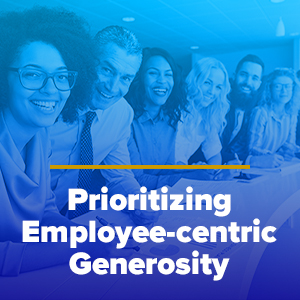
2022 Business Generosity Report:
A Road Map for Resilience
Over the last four years, goBeyondProfit and Georgia CEO have captured significant research insights into business generosity here in Georgia. Talking to both employed adults and those running businesses, our reports explore the relevance of generosity in the life of a company and the connection between generosity and the bottom-line.
As the landscape around business has changed, the role of business generosity has also evolved. Disruptions in the markets and in people’s personal lives ushered in the request that generosity begin at home, inside a business, in terms of employee care and business operations as well as outside the business through support to address community needs. In the chapters of this report, we have worked to bring clarity and concrete guidance around this evolution of business generosity – a road map of sorts – in the midst of on-going turbulence. We are pleased to bring you the 2022 goBeyondProfit research report:
Summary of Findings:
Generosity influences employment decisions
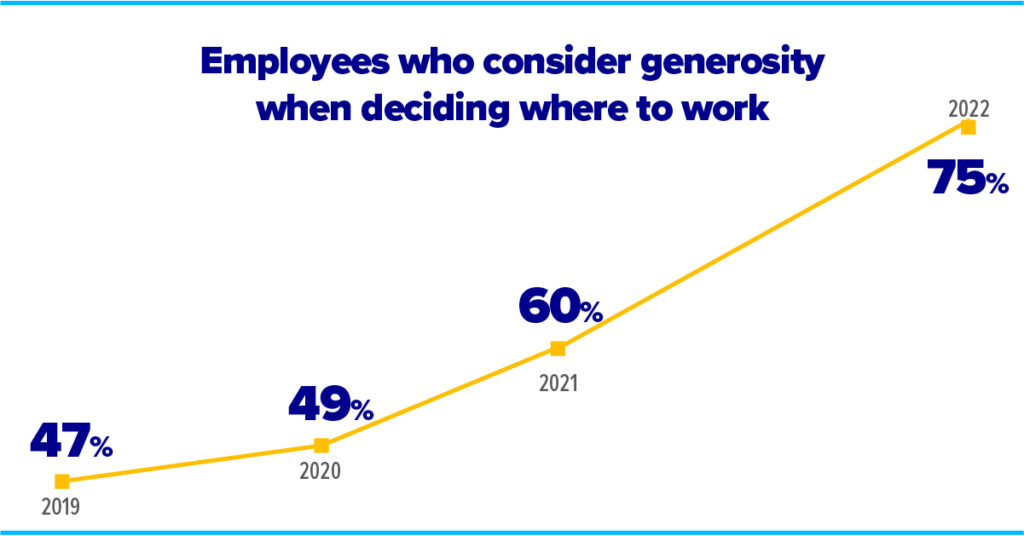
Year over year, we ask employees if generosity efforts impact their decision about who they work for and the answer is a resounding yes (Chapter One). In fact, for the majority of employees, working for a generous company is now extremely or very important. But there’s a distinct difference between what employees would like to see when it comes to generosity toward employees (Chapter Two) versus generosity toward the community (Chapter Four).
RED ALERT: Mental health concerns reach historic high
In the summer of 2020, employed adults in Georgia told us their mental well-being was leaning toward the positive. But they also indicated that they needed their employer to know that they were emotionally impacted by events of the year. Stressors have compounded and this year’s data raises a concerning red flag around mental health. When asked how employers can best demonstrate their care and generosity toward employees, respondents choose Mental Health Support as their #2 choice. When asked their reasons for leaving current employers, they named Mental Health as their #2 reason.
If executives focus entirely on employee’s top request – compensation – without tuning into these underlying health and wellness issues, turnover will likely continue. People want their employers to know they are hurting and they are asking their employers for help (Chapter Two).
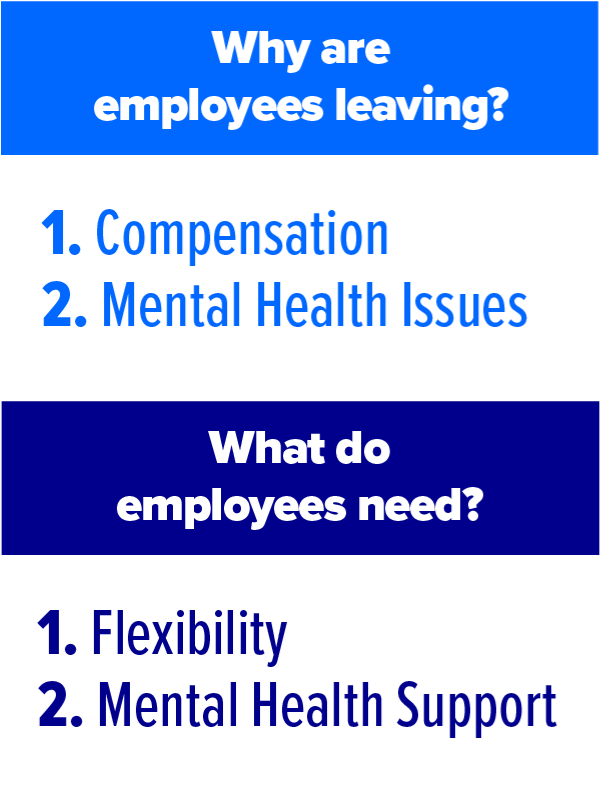
Flexibility increases the connectivity of company culture
We explored crosstabs of the data to find out the impact of remote work on company culture. Company values and purpose statements remain effective tools for connectivity and cohesive culture. But as executives wrestle with whether they can maintain their historically successful company culture, the answer appears to be that you cannot go back to the way things were without consequences. People who experienced flexible work schedules find their company culture more compelling and feel more connected. People without flexibility feel significantly less connected and far more skeptical of the promises of the company culture. (Chapter Three)
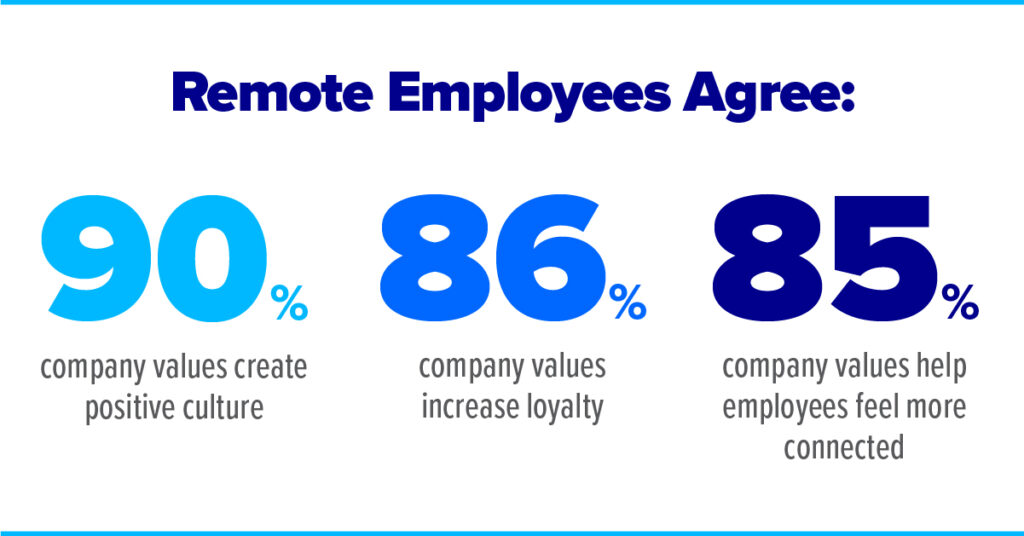
Trust needs to go both ways…
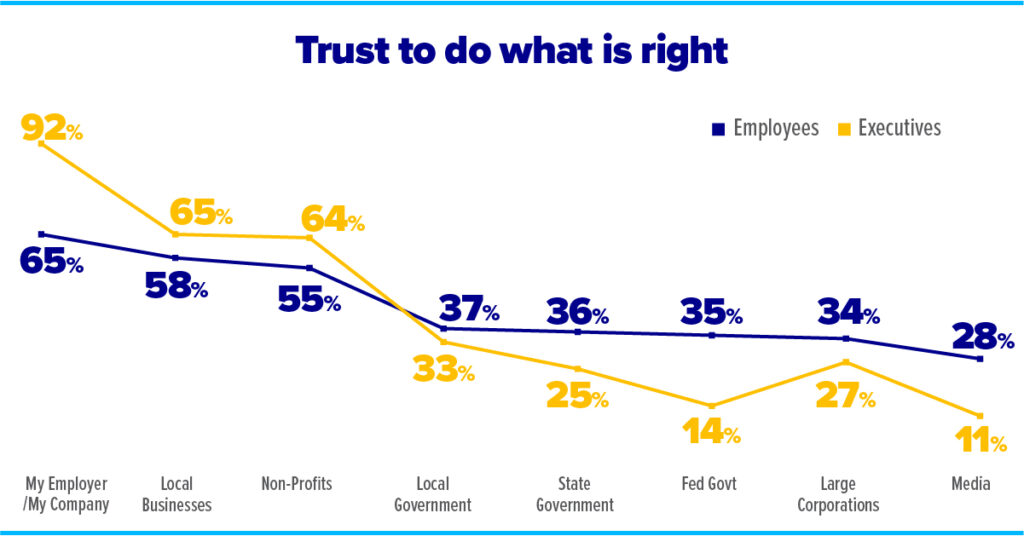
Employees trust the businesses in their lives to do what is right. Overall, they trust that businesses are putting their commitments into action. They also trust business to solve the problems we collectively face and offered their input into the specific actions they would like to see business take (Chapter Four).
In return, employees are asking to be trusted. They want their senior leaders to demonstrate that they trust them and named lack of trust in their top four reasons for leaving their current employer. In contrast, executives did not indicate that they need help trusting their employees. This appears to be a disconnect. (Chapter Two)
Explore further insights:
In Partnership with



